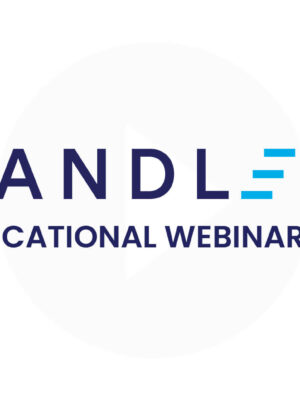5 Essential Sales Interview Tips to Help You Close the Deal

Hiring season is here, and it’s you’re chance to show off your skills and really shine. You may be one in a million, but you could be competing with dozens of others to secure the sales job you’ve been dreaming of. The right preparation and an idea of some of the elements that are commonly included in sales interviews can help give you an edge.
You’re Selling from the Moment You Walk in the Door
You’re interviewing for a job, but you’re also showcasing your selling skills and abilities for your prospective employer. A sales interview differs from any other type of interview, since the team will be evaluating not only your background, personality and communication skills, but your ability to sell yourself as well. If you don’t do a convincing job selling a yourself, how can you be expected to sell the company’s products and/or services?
Prepare for a sales interview just like you’d prepare to meet a new prospect. If you will be selling in person, you will eventually be representing the brand, so the sales interview gives the employer a very good idea of how you will represent them and what prospective clients will think when they interact with you.
So, what do you do (and not do) before and during an interview? The following tips are designed to help give you an edge and ensure you walk through the door prepared to sell the interviewer on the product you know best – yourself.
1. Research, Research, Research
Research the company as you would any prospect. What do they do, and what are their core values (hint, you’ll find this on their website under “Mission Statement” or “About Us”. This basic research is just the beginning; a look at the business’s social media channels and mentions in the news will help round out your impression and understanding of what they do.
Do: Research thoroughly
It is not uncommon to face sales interview questions that inquire about how you learned of the job, what you know about the company and even how you researched them. A question about your research gives you the opportunity to “wow” the team – by mentioning something that is not terribly well known about them. Mention a fact from their online newsletter or blog and they’ll swiftly realize you did more than just take a quick peek at their home page. You’ll stand out as a memorable candidate and show that you are able to thoroughly check out a lead or prospect before making contact.
Don’t: Just get the basics
A quick look at the business website is a start, but not nearly enough to give you the information you need to perform well in the interview. If you bypass learning about the core business, how they sell themselves and what other companies they own or are affiliated with, you’re missing out. A lack of research could lead to you accidentally saying the wrong thing (and not even realizing it). Think about it – would you show up for an interview at Starbucks with a cup of Dunkin Donuts coffee in hand? If you don’t do enough research, you could make this jarring of an error, without even realizing it.
2. Tell us About Yourself
The biography portion of the interview allows you to showcase your strengths and let the interviewer know what you can bring to the team. You should be able to relay your abilities in a positive way and sell the interviewing team on the benefits of hiring and working with you. Understanding the job, what it entails and then clearly relaying how you can help the business succeed is the key to answering the “about you” portion of the interview correctly.
Do: Know what you’re applying for
You should be able to accurately describe the role you are applying for and be able to detail why you will exceed the company’s expectations in every way. Think of yourself as a product you are selling and let the interviewing team know how you will benefit them. “I’m a great salesperson” is nice, but “I have exceeded my sales goals for the last 16 months and counting” is better.
Don’t: Misunderstand the job or your own abilities
If you don’t get the company’s approach to selling or you can’t fully describe how your own talents and abilities will benefit them, you’re missing out. Being able to describe the benefits of any product – including yourself—is a key part of selling; miss out on this opportunity and another, savvier salesperson will snag the job instead.
3. Be Prepared to Give Examples
Most sales interviews will include questions about not only your personal approach to sales, but how you’ve tackled selling challenges in the past. A recent piece in Forbes directed at those wishing to hire star sales people advised the interviewers to ask about times the process went wrong – and to learn what the subject did to get back on track. Failing to answer this question fully could hurt your chances.
Do: Be prepared to provide examples of situations using the STAR model:
- Situation (set the scene)
- Task (your role or what was required)
- Action (what you did)
- Result (the outcome, hopefully a positive one)
The STAR approach is ideal for storytelling in an interview situation, since it distills an incident down to its most basic facts and allows you to tell an interesting but concise tale. Have a few examples in mind and ready to tell before going into the interview.
Don’t: Get caught unaware by the question or worse. provide an example but no solution/result.
Giving complete examples not only shows that you have handled situations and challenges well in the past, it also showcases your communication skills. Resist the temptation to ramble or stray from the tale you are telling or omit the end when faced with a STAR type query.
4. Dress for Success
More than a buzzword, dressing to fit in with the company culture and the existing sales team makes it easy for your interviewers to picture you as an employee and can help move you one step closer to your dream sales job.
Do: Dress to Match the Company Culture and Brand
Dressing appropriately is important for any position, but it is critical for a sales spot. Why does it matter so much? You, if you secure the job, will become the face and embodiment of the business when you visit clients. You’ll literally be a living, moving and breathing impression of the brand.
What does your look say about the brand? If you’re dressed less than your best or in a way that doesn’t really work with the company’s brand, culture and values, you could miss out, regardless of how well you field the tough questions.
Include clothing and style in with your research about a business – if they’re local, try to get a glimpse of what their existing sales team wears. Use this information to model your look for the interview and to blend in well when you secure the job.
Don’t: Take Risks with your Clothing
That tie with the “funny” political quip about conservatives may not go over well with your interview at a known conservative brand, while an overly formal approach won’t gain you any fans at a more relaxed company known for its quirky sense of humor.
If you’ve ever seen the movie Stepbrothers, you will understand the way clothing changes perceptions; the brothers show up for interviews dressed (or overdressed) in tuxedos and hilarity ensues. It’s funny on the big screen, but a mismatch in the way you dress and the company culture could cost you the position you want.
5. Close the Deal
You don’t need to be aggressive, but you do need to make an attempt to close, even if you just ask about the next steps. Closing is a key part of the sales process, and if you neglect to actually ask for the job or for a follow up, you’ll be missing out.
Do: Keep Closing in Mind
Using trial or mini-closings and getting the interviewer to say “yes” throughout the session will help differentiate you from others in the process, who are thinking “job interview” not “selling opportunity.”
Don’t: Be Overly Aggressive
Some businesses love a salesperson who follows the ABC formula (Always Be Closing), but some prefer a softer approach. Don’t be overly aggressive in your efforts if you are not 100% certain which category this potential employer falls into.
The Bottom Line
Do your research and be prepared to tell your story and you’ll be able to rise to the challenge of the sales interview. Taking the time to prepare in advance could be the difference between landing the job and continuing your search elsewhere.








